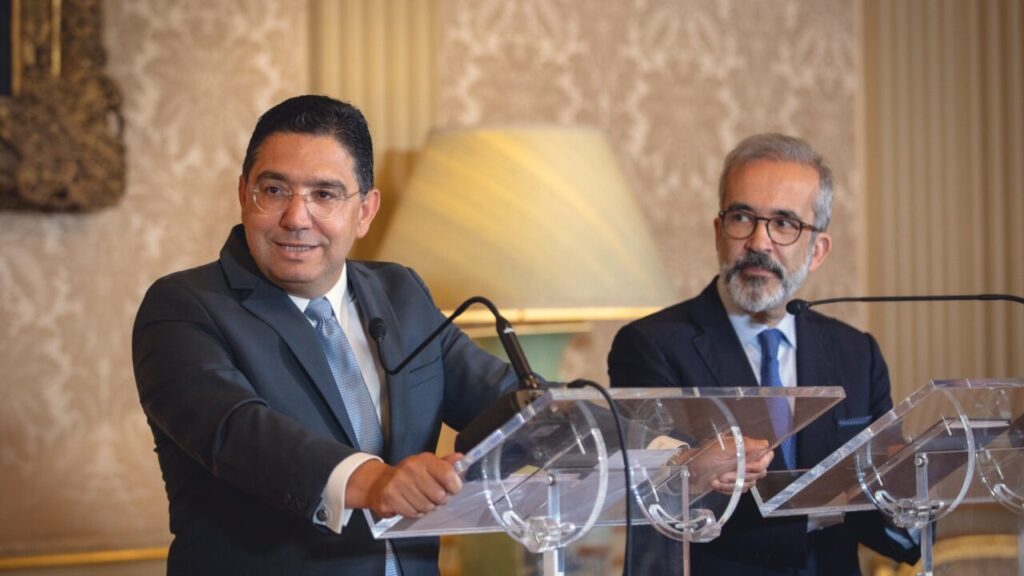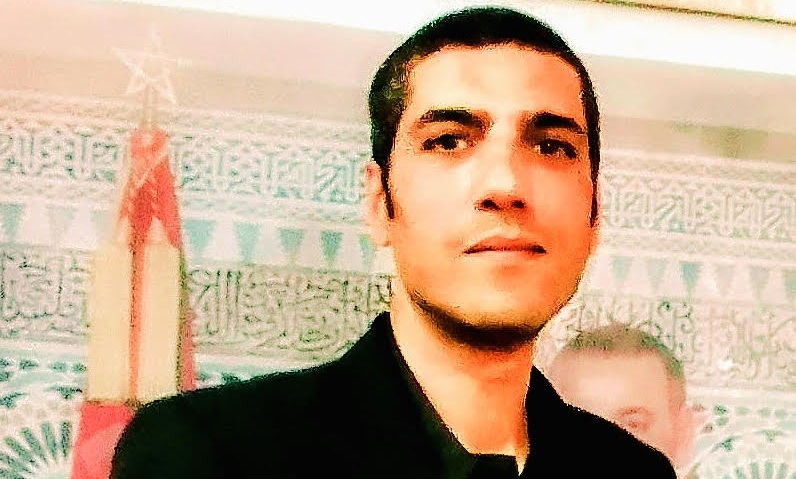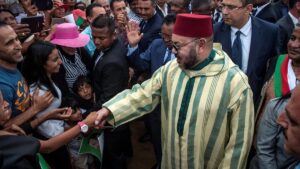Morocco consolidates its sovereignty in the Sahara, while Algeria sinks into diplomatic isolation.

Written by: Mohamed Azouz (Moroccan writer and journalist)
Amid the rapid geopolitical transformations taking place in the region and the world, Morocco is emerging as an active and influential regional power, particularly regarding the Western Sahara issue. This dynamic is clearly evident in the growing international support for its positions, most recently the unequivocal Portuguese position, which affirms the strength of the Kingdom's strategic vision and reinforces its path toward consolidating its full sovereignty. In contrast, the Algerian military regime's isolation is deepening, and its diplomatic and strategic defeats are mounting, reflecting the erosion of its influence on the international stage.
Portugal's full support for the Moroccan autonomy initiative has dealt a resounding blow to the Algerian regime and reveals the waning influence of its generals on the international stage, even among traditional allies. This unequivocal Portuguese position, announced in a joint statement with Morocco on Tuesday, July 22, 2025, underscores the weakness of Algeria's position in the face of the political settlement process proposed by Morocco and reinforces the international conviction that the world can no longer tolerate unprofitable adventures or separatist propositions that have brought nothing but destruction and division.
The Portuguese side emphasized the great importance Portugal attaches to this issue for Morocco, commending the Kingdom's "serious" efforts within the framework of the United Nations to reach a just, lasting, and mutually acceptable political solution. Both sides also renewed their support for Security Council Resolution 2756, which emphasizes the need to pursue a political solution based on consensus between the parties. This position reflects growing international support for the autonomy initiative presented by Morocco in 2007 as a practical and serious solution to the regional conflict. It has been widely welcomed in international and regional forums, enhancing its legitimacy and credibility.
Portugal's announcement of its full support for the Moroccan autonomy initiative represents a major diplomatic victory for Morocco, carrying profound implications that strengthen the initiative's international standing. The support of a prominent European country like Portugal, an active member of the European Union and NATO, lends strong impetus to the credibility of the initiative proposed by Morocco in 2007. This position confirms its compliance with international law and its fulfillment of the international community's aspirations for a practical and realistic political solution. This support refutes Algeria's allegations regarding the initiative's illegitimacy, further confirming the growing international recognition of the Moroccan proposal.
This Portuguese move comes within the framework of the continuing growth of international support for the Western Sahara issue. It was preceded by influential countries and numerous official positions, including the United States, France, and Spain, along with a number of African and Arab countries, which expressed their support. This demonstrates Morocco's success in transforming the issue from a regional conflict fueled by external parties into one that enjoys widespread acceptance as an integral part of Moroccan sovereignty. This support is not limited to the political level; it also translates into appreciation for Morocco's efforts to achieve lasting peace. Portugal commended Morocco's serious efforts within the framework of the United Nations, clearly reflecting the Kingdom's commitment to international legitimacy and its genuine desire to reach a just solution that reflects the interests of all parties, in contrast to those parties that continue to obstruct this approach.
In parallel, Portugal's position contributes to strengthening the strategic bilateral relations between Morocco and Portugal, which share multiple common interests in the areas of security, trade, and migration. This support represents an opportunity to expand the horizons of cooperation between the two countries, strengthening the partnership between the two shores of the Mediterranean and paving the way for deeper cooperation in the future.
The success of Moroccan diplomacy in this matter reflects a balanced and prudent strategy, consciously and clearly led by King Mohammed VI. Morocco presented the autonomy initiative as a compromise that respects state sovereignty while simultaneously guaranteeing the rights of local populations. This balance has earned the Moroccan vision broad international acceptance, as it combines realism and flexibility, unlike other alternatives deemed unworkable, such as secession. Furthermore, Morocco has skillfully diversified its international partnerships. Building strong alliances with major powers such as the United States, France, Spain, and the United Kingdom, as well as the support of numerous African and Arab countries, has contributed to lending greater legitimacy to the Moroccan initiative. This can be clearly seen in Portugal's support, which further strengthens the momentum of European support for this cause.
Morocco has also wisely leveraged its geostrategic location to establish itself as a reliable partner in the Maghreb and Mediterranean region, particularly in sensitive areas such as combating terrorism, combating illegal immigration, and maintaining regional stability. This has led European countries, including Portugal, to view its support as a well-deserved shared strategic interest. Furthermore, Morocco has strengthened its economic diplomacy by enhancing its presence in Africa and globally, creating significant opportunities for trade and investment cooperation with numerous countries. This is particularly true in light of the growing investment in the Kingdom's southern regions, which directly reinforces the link between economic interests and national sovereignty.
Portugal's support reflects the convergence of visions between the two countries on several strategic issues, most notably the joint bid to host the 2030 FIFA World Cup with Spain. This triple hosting represents the pinnacle of strategic coordination. While Portugal's support for Morocco on the Western Sahara issue reflects mutual trust, the joint effort to organize a global event of this magnitude underscores the depth of the relationship and the extent of shared interests.
Morocco, for its part, is investing in this hosting to strengthen its position as a pivotal regional power, particularly in its relationship with Europe and Africa. This ambitious strategy is not limited to sports alone, but extends to infrastructure, tourism, and strengthening economic and cultural ties. It is a future-oriented vision aimed at further integrating Morocco into the global economy and consolidating its position as a gateway between the two continents. This strategic integration reflects a multitude of visions that go beyond mere bilateral relations to major projects with global dimensions.
In contrast to Morocco's growing influence, the Algerian military regime suffers from stifling diplomatic isolation, restricting its relations to countries with limited political and economic influence. This decline coincides with the confident and consistent rise of international recognition of Morocco's sovereignty over its southern provinces. From this perspective, the Algerian regime has demonstrated its clear failure on the Western Sahara issue. This failure is evident in its adherence to an unrealistic and isolated position, which drives it to continue supporting the Polisario Front and its separatist demands, despite this position having lost international legitimacy. The international community, including Portugal, views the Moroccan autonomy initiative as the most credible solution, exposing Algeria's inability to offer practical alternatives or a clear strategic vision.
Algeria's diplomatic isolation is growing increasingly humiliating, as evidenced by Portugal's support for Morocco. This reflects Algeria's declining influence even in traditional international forums where it once enjoyed support. Algeria has failed to garner sufficient international support, and its position has become confined to a small number of countries with little political or economic influence, clearly underscoring the erosion of its international credibility. Furthermore, the Algerian regime continues to squander resources and the people's wealth through its massive expenditures on supporting the Polisario Front, at a time when Algerians are suffering from stifling economic and social crises. This reflects a severe mismanagement of national priorities and a perpetuation of ongoing failure.
Moreover, Algeria is losing international credibility as a result of its continued rejection of Security Council resolutions related to the issue, such as Resolution 2756, which calls for a consensual political solution. This portrays it as an obstructive and unconstructive party to UN efforts, unlike Morocco, which adheres to UN frameworks and seeks just and peaceful solutions. Furthermore, the Algerian military regime is exploiting the issue for cheap domestic purposes, using the Western Sahara issue as a tool to divert attention from intractable internal problems such as rampant corruption and systematic political repression. This approach has become apparent, as the international community realizes that Algeria is not a neutral party, but rather one fueling the conflict to serve narrow political interests, at the expense of the security and stability of the entire region.
The Portuguese position represents a new diplomatic victory for Morocco, strengthening the legitimacy of the autonomy initiative and cementing Morocco's position as a reliable international partner. The success of Moroccan diplomacy lies in its realistic strategy, diversifying its partnerships, and skillfully exploiting its geostrategic location. This success is not limited to the regional issue, but extends to major initiatives such as hosting the 2030 World Cup, which embodies the convergence of visions between Morocco and its allies and confirms the strength of the Kingdom's strategic vision for the future.
In contrast, the Algerian military regime is increasingly isolated and unable to offer an alternative vision or practical solutions, rendering it unable to counter the international momentum supporting Morocco. This position reflects the imbalance in Morocco's favor in managing this conflict, as it continues to consolidate its sovereignty over its southern provinces, while Algeria remains trapped in the illusions of the past and its destructive policies of hostility, thus missing opportunities for regional integration and shared development.






